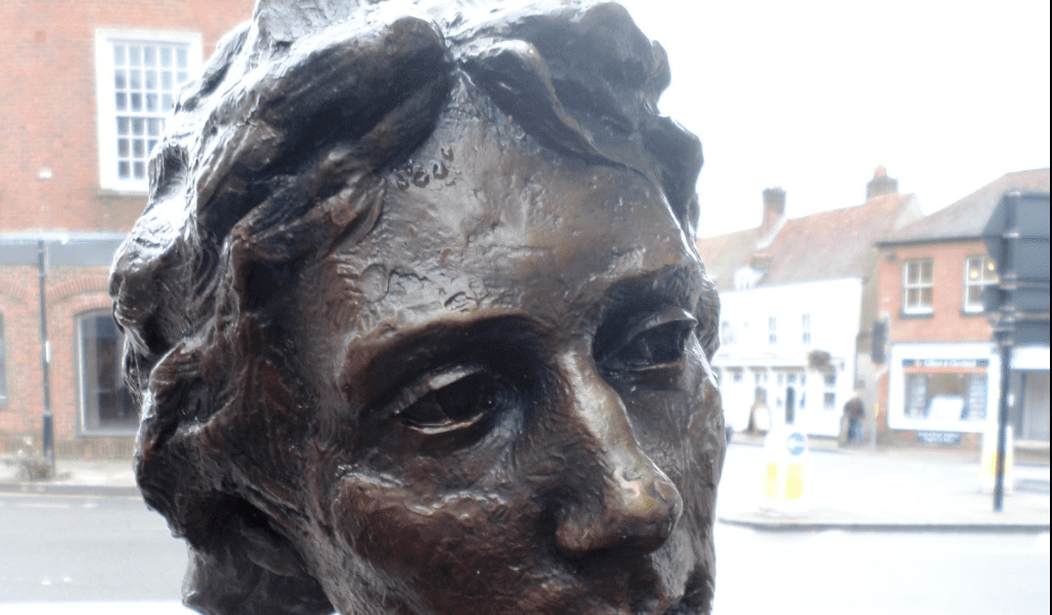John Keats died 200 years ago on this date, just twenty-five years of age. Consumption robbed the English language of its last truly great poet. This is (or should be) a day of great solemnity and sadness for all who value the high culture of the West. As a young man I wept on his grave at the Protestant Cemetary in Rome. No-one should leave high school without knowing a couple of his poems by heart. We hardly know Keats today, and we are impoverished for lack of his acquaintance.
Critical opinion has favored Wordsworth among the English (so-called) Romantics; I never understood why. I find his infatuation with nature, well, fatuous, and his most famous poem, “I Wandered Lonely as a Cloud,” speaks to me me more in the Mad Magazine parody (where axolotls replace the celebrated daffodils). That may sound crass, but I hate Romanticism the way Lex Luther hates Superman. Coleridge was a brilliant wordsmith but a bit crazy; Shelley by contrast to Keats had a tin ear. And after G.K. Chesterton’s brilliant parody, who can hear Tennyson, Whitman, or Yeats without giggling? No-one tries to parody Keats, because there is nothing predictable or formulaic in his entire output.
Keats was a Classicist, not a Romantic, and his reflection on the relationship between ancient and modern poetry conjures up Homer’s spirit like nothing else in the English language. Here is the famous sonnet “On First Looking Into Chapman’s Homer,” referring to the first English translation of the Greek epics by a contemporary of Shakespeare.
Much have I travell’d in the realms of gold,And many goodly states and kingdoms seen;Round many western islands have I beenWhich bards in fealty to Apollo hold.Oft of one wide expanse had I been toldThat deep-brow’d Homer ruled as his demesne;Yet did I never breathe its pure sereneTill I heard Chapman speak out loud and bold:Then felt I like some watcher of the skiesWhen a new planet swims into his ken;Or like stout Cortez when with eagle eyesHe star’d at the Pacific—and all his menLook’d at each other with a wild surmise—Silent, upon a peak in Darien.
Listen to the contrasting meter of the alternating lines:
“Much have I travel’d in the realms of gold…” is almost dactylic: Long-short-short Long-short-short, etc.
That recalls Homer’s “heroic meter,” a line composed of six dactyls. English poets have attempted to write in Homeric dactyls, notably the unfortunate Longfellow (“This is the forest primeval, the towering pines and the hemlocks”) and succeed only in evoking motion-sickness. I was forced to read Longfellow’s ghastly “Evangeline” in high school and never felt so nauseous. John Chapman, the Elizabethan translator celebrated in Keats’ sonnet, wisely eschewed a metrical imitation of Homer and instead used popular ballad meter:
Achilles baneful wrath resound, o Goddess, that imposedInfinite sorrows on the Greeks and many brave souls loosedfrom breasts heroic.
But Keats, with the most sensitive ear in English poetry since Shakespeare, gives us the flavor of the ancient meter in the odd-numbered lines, alternating with iambic pentameter (the meter of the English sonnet as well as blank verse) in the even-numbered lines. Not only in content, but in aural sensation, we go back and forth between the modern and the ancient world. Contrasting ancient and modern meter was not Keats’ invention; one finds it in Goethe’s free-verse poem “Prometheus,” but no-one else could do this sort of thing in English.
Keats’ Chapman poem isn’t his most important work, to be sure. My favorite is the “Ode to a Nightingale,” recited well by Ben Wishaw in the 2009 film Bright Star. To the extent that Keats had a philosophy (“Truth is beauty and beauty is truth”), I disagree with it, but that’s beside the point in poetry. In his too-brief sojourn on earth he ennobled the language and lifted our spirits, and I observe the anniversary of his death with the hope that we will keep his memory evergreen.










Join the conversation as a VIP Member